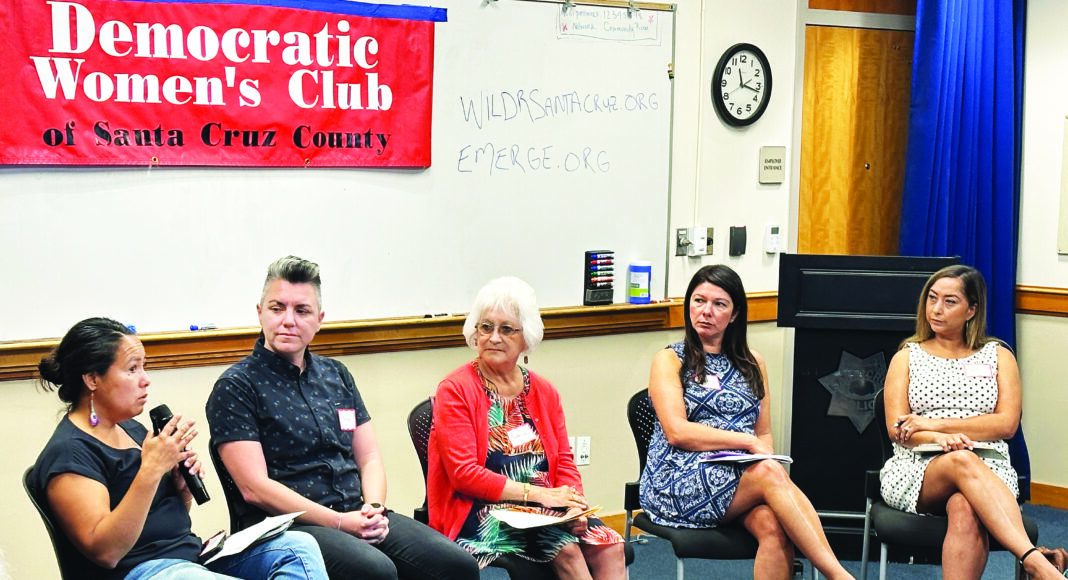Monica Martinez is no stranger to discrimination.
Martinez, a queer Latina woman, grew up in conservative Bakersfield, California. When she turned 18 she came out to her family and from that early age on, she faced prejudice and judgment over her identity.
“There weren’t people that looked like me in the political office (in Bakersfield) and really kind of at all growing up in a conservative community,” Martinez said. “I just thought I wouldn’t be electable because of who I was.”
The need for greater diversification of Santa Cruz County politics and the obstacles that women of color face when running for election or sitting in office was the topic of conversation on Oct. 7 at the Democratic Women’s Club-sponsored event, held at the Santa Cruz Police Department’s meeting room.
Four women sat on the panel: Monica Martinez, who is running for County Supervisor in District 5; Santa Cruz City Council member Shebreh Kalantari-Johnson, who is an Iranian immigrant; former Watsonville Mayor and council member Rebecca Garcia, who is Latina, and former Capitola Mayor and current council member Yvette Brooks, who is also Latina.
Mireya Gomez-Contreras facilitated the two-hour event, which drew around 30 people in-person and virtually.
“Our current representation is lacking in diversity,” Martinez said. “It’s missing many voices. It’s missing a woman’s voice at the county level. If elected, I would be the first LGBTQ supervisor in the history of the county.”
There are many deterrents that keep women—and particularly women of color—from running for office. These include male-dominated political networks, access to funding and internalized racism. Some of the suggestions to make politics a more even playing field included changing campaign financing, workshops offered for women of color to understand their trauma and conscious support from white women.
Women from the panel touched on all of these as personal challenges they had to work to overcome.
“I need to spend a lot of my time as a candidate connecting with people and building trust that might otherwise be assumed,” Martinez said. “A lot of it’s unconscious bias, right, but somebody’s gonna feel more comfortable electing somebody who looks like the prior candidates.”
Garcia, who has worked in local politics for decades, described the mental exhaustion that comes with being a woman of color in office. In 2018, at a county women’s club that mainly consisted of white women, she described a lack of support from the members: in one instance, almost none of the women purchased Garcia’s raffle tickets, money that would have gone to her campaign. Garcia also talked about later being snubbed by the Women’s Pilot Association of the Watsonville airport, who endorsed her male opponent despite her relationship with the organization.
“Was it because he was a young white male and they too were white and I was brown?” Garcia wondered.
Garcia, along with some of the other women, echoed one consequence of these kinds of encounters: developing a tough skin, or as Garcia put it, becoming a conchuda. But, they all credited these incidents in part to a greater dedication to paving a path forward for future generations.
“When I came out when I was 18, that’s the first time I experienced what it was like to not have a voice,” Martinez said. “And now I feel like that’s one of my greatest missions, to give voice to those who are most in need.”















30 people in person and online? Way to get the word out!